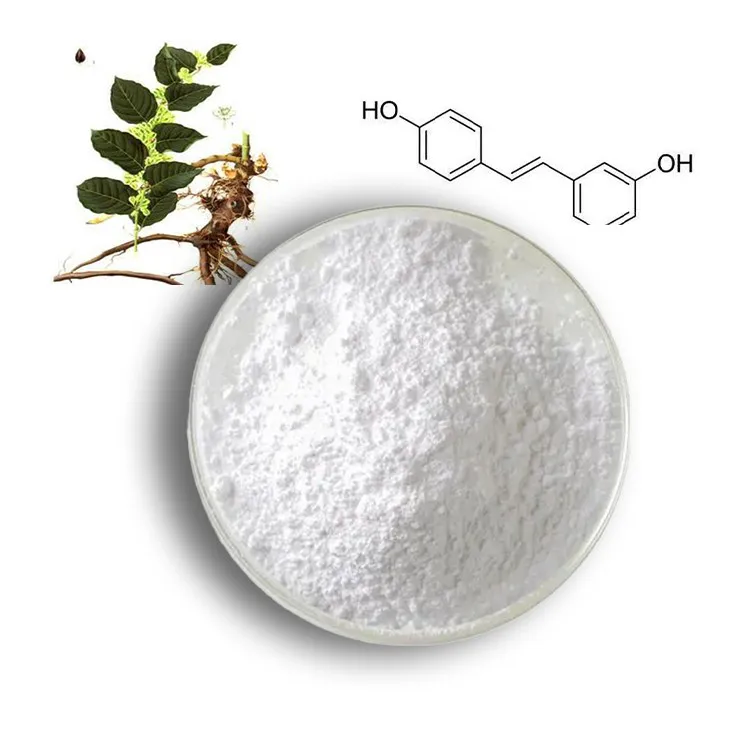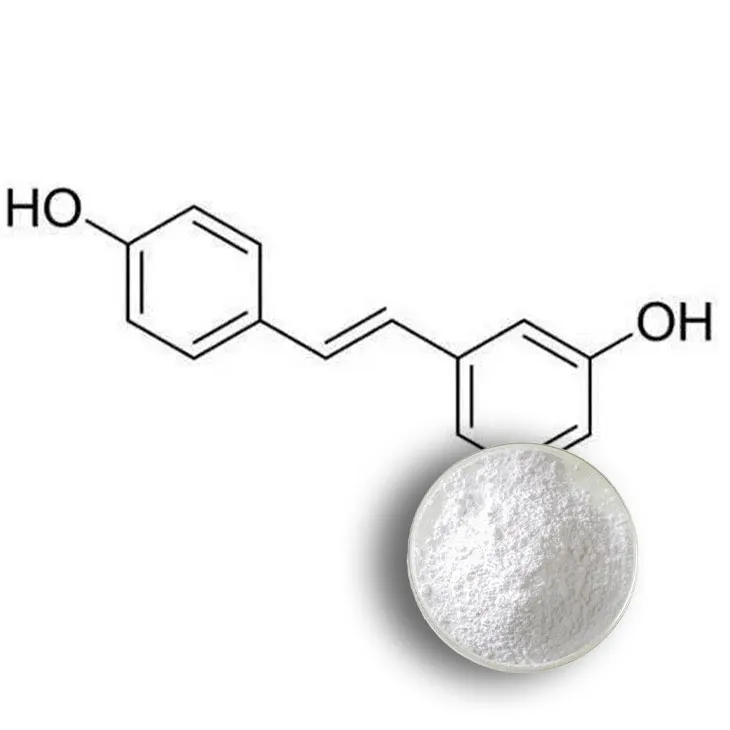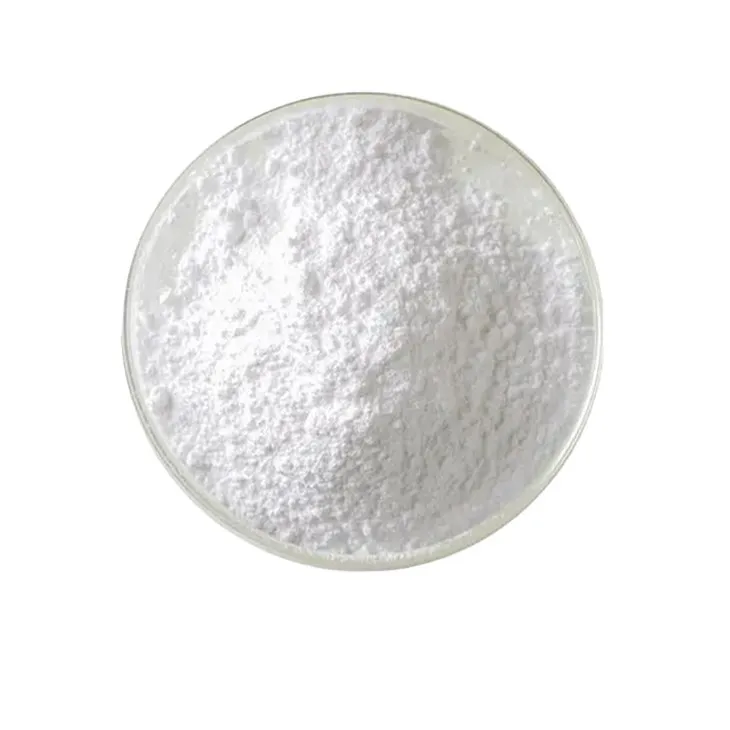- 0086-571-85302990
- sales@greenskybio.com
Resveratrol Extract: Should You Use It for Skin Care?
2024-11-13

1. Introduction to Resveratrol
Resveratrol is a natural compound that has been making waves in the skincare industry. It is primarily derived from red grapes, but can also be found in other sources such as berries and peanuts. This natural substance has a range of properties that make it potentially beneficial for the skin.
One of the most important aspects of resveratrol is its antioxidant capabilities. In the world of skincare, antioxidants are like the bodyguards of our skin cells. Free radicals, which are highly reactive molecules, are constantly bombarding our skin due to factors like pollution, UV radiation, and stress. These free radicals can cause damage to the skin cells, leading to premature aging, wrinkles, and dullness. Resveratrol, with its antioxidant power, can scavenge these free radicals, neutralizing their harmful effects and protecting the skin cells.
Another significant property of resveratrol is its anti - inflammatory nature. Skin inflammation can be caused by various factors, including allergies, irritants, and certain skin conditions. Inflammatory skin can be red, itchy, and uncomfortable. Resveratrol can help to soothe irritated skin by reducing inflammation, which may also be beneficial for those with skin conditions such as eczema or psoriasis.

2. Comparison with Other Skincare Ingredients
2.1 Vitamin C
Vitamin C is a well - known and widely used skincare ingredient. It is also a powerful antioxidant. However, resveratrol and vitamin C have some differences in their antioxidant mechanisms. Vitamin C is water - soluble, while resveratrol is lipid - soluble. This means that resveratrol can penetrate deeper into the lipid - rich layers of the skin, providing antioxidant protection in areas that vitamin C may not reach as effectively.
On the other hand, vitamin C is known for its ability to boost collagen production, which is crucial for skin firmness and elasticity. Resveratrol, while it may have some indirect effects on collagen through its antioxidant and anti - inflammatory actions, does not have the same direct impact on collagen synthesis as vitamin C.
2.2 Retinol
Retinol is a form of vitamin A and is highly regarded in the skincare world for its anti - aging properties. It works by promoting cell turnover, which can improve skin texture, reduce wrinkles, and fade age spots. Resveratrol, in contrast, focuses more on antioxidant protection and inflammation reduction.
Retinol can be quite irritating to the skin, especially for those with sensitive skin. Some people may experience redness, peeling, or dryness when using retinol products. Resveratrol, being a more natural and gentle ingredient, may be a better option for those with sensitive skin who still want to address signs of aging and skin health.
2.3 Hyaluronic Acid
Hyaluronic acid is a moisture - binding ingredient that helps to keep the skin hydrated. It can hold a large amount of water, making the skin look plump and smooth. Resveratrol does not have the same hydrating properties as hyaluronic acid. However, they can work well together in a skincare routine.
While hyaluronic acid focuses on hydration, resveratrol can protect the skin from damage and inflammation, which can help to maintain the overall health of the skin. For example, if the skin is constantly inflamed, it may not be able to retain moisture as effectively. By reducing inflammation, resveratrol can support the skin's ability to hold onto moisture provided by hyaluronic acid.

3. How to Use Resveratrol extract in Skincare
3.1 Topical Applications
There are various ways to use Resveratrol extract topically. One of the most common forms is in a serum. Resveratrol serums are designed to be applied directly to the skin after cleansing and toning. A few drops can be gently patted onto the face and neck, and then followed by a moisturizer.
Another option is in a cream or lotion. These formulations may also contain other beneficial ingredients that work in synergy with resveratrol. When using a resveratrol - containing cream, it should be applied evenly to the skin, paying attention to areas that are more prone to aging or inflammation, such as around the eyes and the corners of the mouth.
3.2 Incorporating into a Skincare Routine
Resveratrol can be incorporated into different types of skincare routines. For a basic routine, it can be used in the morning and/or evening. In the morning, it can provide antioxidant protection against environmental stressors throughout the day. In the evening, it can help to repair any damage that has occurred during the day and reduce inflammation.
If you have a more complex skincare routine that includes other active ingredients like vitamin C or retinol, it is important to consider the order of application. Generally, resveratrol can be applied before or after these ingredients, but it is advisable to do a patch test first to ensure compatibility. For example, if you are using a vitamin C serum, you can apply resveratrol either before or after it, depending on how your skin reacts.

4. Potential Side Effects
While resveratrol is generally considered safe for topical use, there are some potential side effects to be aware of. Some people may experience mild skin irritation, such as redness or itching, especially if they have very sensitive skin. This is relatively rare, but it can occur.
Another potential concern is allergic reactions. Although resveratrol is a natural substance, some individuals may be allergic to it. If you notice any signs of an allergic reaction, such as swelling, hives, or difficulty breathing, stop using the product immediately and seek medical attention.

5. Conclusion
Resveratrol extract has a lot of potential in skincare. Its antioxidant and anti - inflammatory properties make it an attractive option for those looking to protect their skin from damage and signs of aging. However, it is not a one - size - fits - all solution, and its effectiveness may vary depending on individual skin types and concerns.
When compared to other skincare ingredients, resveratrol has its own unique advantages and may work well in combination with them. Understanding how to use it properly and being aware of the potential side effects are key to making an informed decision about whether resveratrol extract is right for your skin.
FAQ:
1. What are the main benefits of white resveratrol extract for skin?
White resveratrol extract has several main benefits for the skin. Firstly, it has strong antioxidant capabilities. It can scavenge harmful free radicals that continuously attack skin cells, which is very helpful in preventing signs of aging such as wrinkles and fine lines. Secondly, it has anti - inflammatory qualities. This can soothe irritated skin and may be beneficial for skin conditions like eczema or psoriasis.
2. How does white resveratrol extract compare to other antioxidants in skincare?
Compared to some other antioxidants in skincare, white resveratrol extract is quite unique. While many antioxidants can neutralize free radicals, resveratrol has been shown to have a particularly high antioxidant capacity. It can target a wide range of free radicals that are often involved in skin damage. However, different antioxidants may work better in different skin types or for different skin concerns. For example, vitamin C is well - known for its brightening effects, while resveratrol is more focused on anti - aging and anti - inflammation.
3. What are the best ways to use white resveratrol extract in skincare?
There are several ways to use white resveratrol extract in skincare. One common way is through skincare products that contain resveratrol as an active ingredient, such as serums or creams. These products are usually designed to be applied directly to the skin. Another way could be in the form of a face mask that contains resveratrol. When using such products, it is important to follow the instructions provided. For example, if it is a serum, it is typically applied after cleansing and toning the skin, before moisturizing.
4. Are there any side effects of using white resveratrol extract for skincare?
Generally, white resveratrol extract is considered safe for most people when used in skincare products. However, some individuals may experience mild irritation, especially those with very sensitive skin. It is always advisable to do a patch test before using a new product containing resveratrol. If there is any redness, itching or other abnormal reactions during the patch test, it may indicate that the product is not suitable for that person's skin.
5. How can one determine if white resveratrol extract is suitable for their skin?
To determine if white resveratrol extract is suitable for one's skin, several factors can be considered. Firstly, skin type plays a role. For example, those with normal to dry skin may benefit from its anti - aging and antioxidant properties. People with oily skin may also find it useful as it can help with inflammation. Secondly, existing skin conditions should be considered. If someone has skin irritation or certain skin diseases, they may want to consult a dermatologist before using products with resveratrol. Finally, doing a patch test as mentioned before is a simple yet effective way to see if the skin has any adverse reactions to resveratrol.
Related literature
- The Role of Resveratrol in Skin Health and Aging"
- "Resveratrol: A Promising Ingredient for Skincare - A Review"
- "Antioxidant Effects of Resveratrol on Skin: Current Evidence"
- ▶ Hesperidin
- ▶ citrus bioflavonoids
- ▶ plant extract
- ▶ lycopene
- ▶ Diosmin
- ▶ Grape seed extract
- ▶ Sea buckthorn Juice Powder
- ▶ Beetroot powder
- ▶ Hops Extract
- ▶ Artichoke Extract
- ▶ Reishi mushroom extract
- ▶ Astaxanthin
- ▶ Green Tea Extract
- ▶ Curcumin Extract
- ▶ Horse Chestnut Extract
- ▶ Other Problems
- ▶ Boswellia Serrata Extract
- ▶ Resveratrol Extract
- ▶ Marigold Extract
- ▶ Grape Leaf Extract
- ▶ blog3
- ▶ blog4
- ▶ blog5
-
Organic Tongkat Ali extract powder factory.
2024-11-13
-
How to make powder with ashwagandha extract.
2024-11-13
-
Rosehip extract manufacturers from China.
2024-11-13
-
The best cat's claw extract in nature.
2024-11-13
-
Chinese Dandelion Leaf Extract Suppliers.
2024-11-13
-
Lycopene
2024-11-13
-
Artichoke Extract
2024-11-13
-
Avocado Extract Powder
2024-11-13
-
Acai Berry Extract
2024-11-13
-
Honeysuckle Pollen
2024-11-13
-
Sea buckthorn oil
2024-11-13
-
Carrageenan Extract Powder
2024-11-13
-
Eucommia Ulmoides Extract
2024-11-13
-
Plantain extract
2024-11-13
-
Andrographis Paniculata Extract Powder
2024-11-13





















